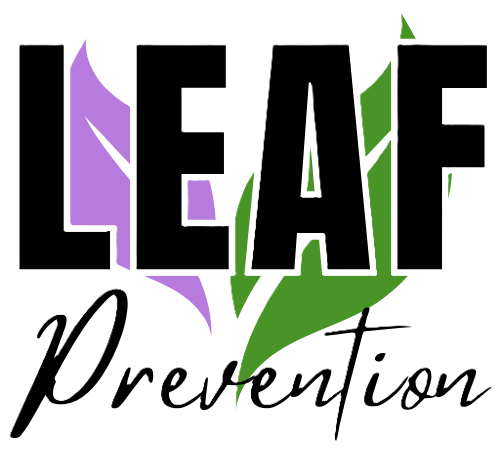

Blog Posts
As of 2024, cannabis has recently been legalized for recreational use in New York State. This change has resulted in an overflow of products available at dispensaries, including gummies, chocolates, vapes, oils, distillates, and much more. Cannabis—also known as weed, marijuana, or pot—seems more popular than ever.
Opinions about cannabis are mixed—some claim it’s a harmless substance, others call it “the gateway drug,” and the government has historically classified cannabis as a Schedule I drug alongside cocaine and heroin.
One of the biggest contributors to adverse effects is cannabis’s potency. Potency refers to how strong the drug is. High-potency cannabis is associated with mental health difficulties and substance use disorder (Hines et al. 2020).
What do you need to know about cannabis potency? Read on for an overview.
The substance in cannabis that makes a person high is called tetrahydrocannabinol (THC). THC can cause a number of side effects, including:
A myth about cannabis is that it’s not addictive. Dr. Deepak Cyril D'Souza of the Yale School of Medicine says, “This couldn’t be further from the truth… There is compelling evidence from both animal studies and humans that some people get addicted to cannabis (~30%) for reasons we don’t fully understand” (Backman 2023).
A study of 1,087 cannabis users revealed that high-potency cannabis use was more common than low-potency use—and high-potency use was associated with a higher risk for depression, anxiety, and more frequent substance use (Hines et al. 2020).
Although many people anecdotally report mild effects from cannabis, it is possible that the drug can trigger psychotic or suicidal episodes in certain vulnerable individuals. These episodes more often follow high-potency cannabis use, and particularly edible forms (NIDA 2019).
On the heels of cannabis’s legalization, many people have turned to edibles instead of smoking, claiming this is a “safer” way to ingest the substance.
While it’s true that any type of smoking compromises the lungs and heart, edibles can be tricky in their own way. When smoking, a consumer will feel cannabis’s effects immediately, but a person ingesting cannabis may not feel the effects for several hours.
This can lead to ingesting more edibles in an attempt to amplify the high—but once the drug kicks in, it ends up being too much, leading to adverse effects.
Over the past few decades, cannabis has become more potent—not less. The risk of ingesting too much THC has increased. This is true for both legally and illegally purchased cannabis products.
Although buying from a dispensary may give some more information about a product’s potency, there are many more high-potency products readily available. Consumers should have a thorough understanding of how strong their cannabis is.
Certain strains—or variations—of the cannabis plant may be bred for higher THC. Many products have also been engineered to deliver more THC, such as vaping cartridges and oils used for “dabbing.”
Dr. Beatriz Carlini, a director and associate professor at the University of Washington, writes that the concentrates used in oils and vapes “contain THC levels varying from 60-90%.” For reference, products with over thirty-five percent THC are considered “highly potent” and risky (Carlini 2023).
Because of these newly altered forms of cannabis, the 1970s version of highly potent cannabis might look tame by today’s standards. The bottom line is that the cannabis available today is very different from what your parents’ or grandparents’ generation used.
We encourage caution with any substance. For more information on cannabis or managing substance use, contact LEAF at (607) 432-0090.
Backman, Isabella. “Not Your Grandmother’s Marijuana: Rising THC Concentrations in Cannabis Can Pose Devastating Health Risks.” Yale School of Medicine. August 30, 2023. https://medicine.yale.edu/news-article/not-your-grandmothers-marijuana-rising-thc-concentrations-in-cannabis-can-pose-devastating-health-risks/#:~:text=Over%20the%20last%20several%20decades,17%25%20and%20continues%20to%20increase.
Blum, Dani. “Are Edibles Safer Than Smoking?” The New York Times. January 29, 2024. https://www.nytimes.com/2024/01/29/well/cannabis-weed-edibles-smoking.html?smid=url-share.
Carlini, Beatriz. “Ask an Expert: What are “High THC” Cannabis Products and What Policies Could Help Limit Harm from Their Use?” Addictions, Drug & Alcohol Institute, University of Washington. April 19, 2023. https://adai.uw.edu/ask-an-expert-high-thc/.
Hines, Lindsey A., Tom P. Freeman, Suzanne H. Gage, Stanley Zammit, Matthew Hickman, Mary Cannon, Marcus Munafo, John MacLeod, and Jon Heron. “Association of High-Potency cannabis use with mental health and substance use in adolescence.” JAMA Psychiatry 77 (10): 1044. May 27, 2020. https://doi.org/10.1001/jamapsychiatry.2020.1035.
LaMotte, Sandee. “Highly Potent Weed Creating Marijuana Addicts Worldwide, Study Says.” CNN. July 25, 2022. https://www.cnn.com/2022/07/25/health/marijuana-potency-addiction-study-wellness/index.html.
National Institute on Drug Abuse (NIDA). “Cannabis (Marijuana) DrugFacts.” December 29, 2019. https://nida.nih.gov/publications/drugfacts/cannabis-marijuana.